
CORONAVIRUS DISEASE COVID 19 NEWS AND RESEARCH
Latest Coronavirus Disease COVID 19 News and Research
Silicon nitride shows potent SARS-CoV-2 neutralization capability
A new study published on the preprint server bioRxiv* in August 2020 shows that the man-made compound silicon nitride, which is used in medical implants and high mechanical performance engineering applications, is capable of inactivating severe acute respiratory syndrome coronavirus 2 (SARS-CoV-2) at varying concentrations without causing cell cytotoxicity. This finding should be investigated to develop disinfectants to clear the virus from surfaces, preventing its spread.
Human antibody response to SARS-CoV-2
A new study published on the preprint server medRxiv* in August 2020 reports on the human antibody response in severe acute respiratory syndrome coronavirus 2 (SARS-CoV-2) infection, which is key to developing vaccines and managing the pandemic, as well as designing and executing serologic testing and interpreting their results.
Patients with cancer and COVID-19 infection can experience blood clots
UC researchers and physicians are learning that COVID-19 impacts more than just the lungs. The list of potential issues multiplies when doctors also consider its impact on patients with other underlying conditions or the medications used to treat those conditions.
Spike ferritin nanoparticles show potential as SARS-CoV-2 vaccine
Now, a new study published on the preprint server bioRxiv* in August 2020 reports the induction of neutralizing antibodies in mice by a single dose of a ferritin nanoparticle-based vaccine containing the spike protein.
14 existing drugs identified as SARS-CoV-2 main protease inhibitors
Now, a new study published on the preprint server bioRxiv in August 2020 reports on the identification of 14 compounds that can inhibit the key viral enzyme called the Main Protease (MPro) at micromolar concentrations.
Scientists explain why SARS-CoV-2 targets multiple organs
Now, a team of researchers at LSU Health New Orleans’ Neuroscience Center of Excellence and School of Medicine has explained the gateway receptor for SARS-CoV-2 and how it leads to the emergence of many complications as it targets many parts of the body.
Majority of U.S. COVID-19 fatalities had underlying medical conditions
Early on in the coronavirus disease (COVID-19) pandemic, there was little data on the virus and how it affects the body. As the virus spread across the globe, data showed that some people were at a higher risk of developing severe disease and dying from the severe acute respiratory syndrome coronavirus 2 (SARS-CoV-2) infection.
Survey: 91% of respondents favor mandatory corona tests for returnees
Should people who come to Germany from risk areas be tested for the novel coronavirus? 91 percent of the respondents are in favor of this.
A nanoscaffolding approach for rapid design of highly immunogenic SARS-CoV-2 vaccines
A research group from Slovenia, Switzerland, and Germany shows how nanoscaffolded assemblies may neutralize interaction between the SARS-CoV-2 spike protein and cell receptor, providing adequate protection in a surrogate infection assay and warranting the advance of such platforms in the pursuit for the effective vaccine.
Scientists solve structure of ORF8 coronavirus protein
Researchers at the University of California and the Lawrence Berkeley National Laboratory have made important discoveries about a protein found on severe acute respiratory syndrome coronavirus 2 (SARS-CoV-2) that could lay the foundations for the development of new treatments.
COVID-19 patients may experience long-term cardiovascular complications
Researchers at the University of Washington in Seattle have conducted a study suggesting that infection with severe acute respiratory syndrome coronavirus 2 (SARS-CoV-2) can directly infect heart tissue and contribute to whole-organ cardiac dysfunction.
For kids with special needs, online schooling divides haves and have-nots
It's Tuesday morning, and teacher Tamya Daly has her online class playing an alphabet game. The students are writing quickly and intently, with occasional whoops of excitement, on the little whiteboards she dropped off at their homes the day before along with coloring books, markers, Silly Putty and other learning props — all of which she created or paid for with her own money.
Med students ‘feel very behind’ because of COVID-induced disruptions in training
COVID-19 is disrupting just about every student's 2020 education, but medical students have it particularly hard right now.
T cell epitopes from recovered COVID-19 patients identified for vaccine
A new study by researchers at The Hong Kong University of Science and Technology and published on the preprint server bioRxiv in August 2020 collates the available database of SARS-CoV-2 T cell epitopes gathered from 8 studies of COVID-19 patients who recovered. This could serve as a launchpad to fill in knowledge gaps regarding the immunological aspects of this disease, and drive towards an effective T cell vaccine.
Cat antiviral that inhibits SARS-CoV-2 fast-tracked for human clinical trials
Now, a team of researchers at the University of Alberta in Canada has identified viral inhibitors that they claim are potential candidates as a treatment for COVID-19. The team is set to launch clinical trials of the drug that is used as a treatment for a type of coronavirus in cats.
Serum protein shows therapeutic value against severe COVID-19-like features in mouse model
A new study published on the preprint server bioRxiv* in August 2020 reports the disease-mitigating effects of a serum protein called serum amyloid P (SAP) in mice exposed to a peptide that mimics the clinical signs of severe COVID-19 in humans.
New lipid derivatives of Remdesivir have higher anti-coronavirus activity
In a fascinating new preprint paper published on bioRxiv* in August 2020, the researchers report “the synthesis and antiviral evaluation of three novel lipophilic prodrugs of RVn-monophosphate that are substantially more active than Remdesivir in cells infected with SARS-CoV-2.” These could be of immense use in treating COVID-19 patients early and helping to end transmission.
Rabbits susceptible to SARS-CoV-2: Red flag for potential virus reservoir
A new study by scientists in the Netherlands and published on the preprint server bioRxiv* in August 2020 shows that the severe acute respiratory coronavirus-2 (SARS-CoV-2) can infect rabbits, which opens the door for possible circulation in rabbit farms and another potential source of animal to human SARS-CoV-2 infection. This finding calls for urgent research on the prevalence of the virus in farmed rabbits.
Using SARS-CoV-2 epitope to construct a vaccine
A new study published on the preprint server bioRxiv* in August 2020 reports the use of prediction and advanced simulation techniques to identify a novel T cell epitope on the severe acute respiratory syndrome coronavirus 2 (SARS-CoV-2) that could serve as the basis for a customized vaccine with broad-based efficacy.
Australia’s readiness for emergencies
Seven in 10 Aussies say strong community bonds sustain them through COVID19, but more action needed to prepare for future lockdowns and looming disasters.
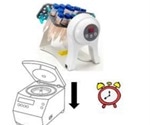
_cfbc10f0643145c78f3cea4c41b6bfbd-150x125.jpg)
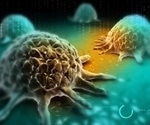
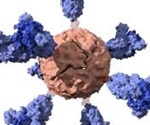
_c64bf1254d4d4aec935002d7e3ec089f-150x125.jpg)
_5c7f1b4e147f4ef6b326f9461ef0a050-150x125.jpg)
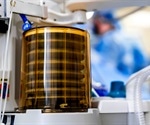
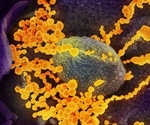
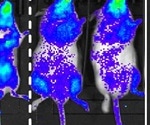
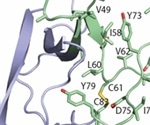
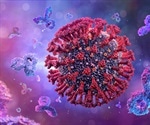
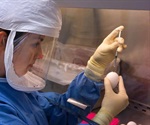
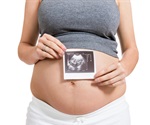
_e84de18befdd42dfa8f996141e365a2a-150x125.jpg)

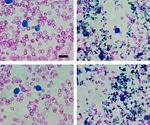
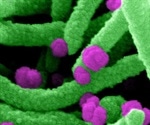

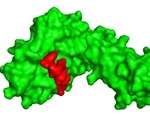

































No hay comentarios:
Publicar un comentario